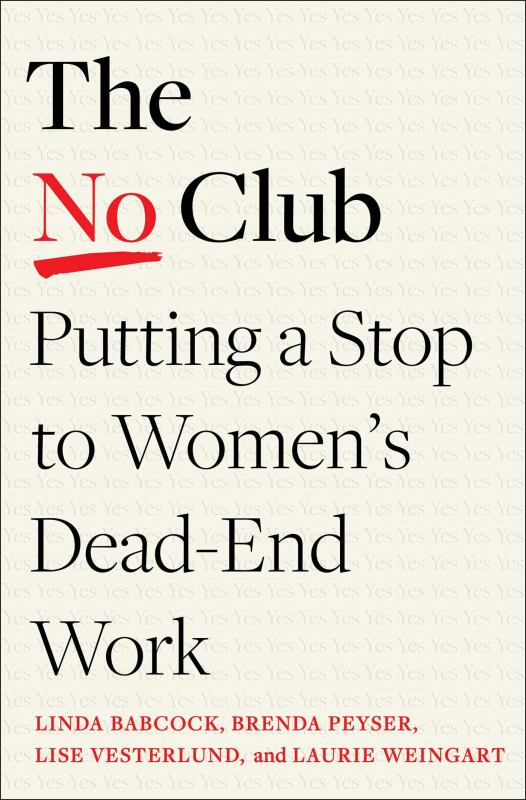How Women in Leadership are Being Overlooked: Understanding the Invisible Workload & Why We Can't Switch off from Work

Deloitte Women@Work, A Global Outlook 2023, calls out that the number of women who feel unable to switch off from work has increased.
I hear it all the time. I got this message recently from a senior professional woman who was recovering from the flu, "Insight - I can completely switch off from work with noooo guilt but have to be VERY sick to do it!! I want to be able to do that at other times too and not just on long holidays (when there is no wifi). I want to be able to switch off with no guilt on the weekends, evenings, days off"
It was tempting to respond with all the latest productivity tips, share brilliant ways of setting priorities, focus on how to say no... all sorts of unhelpful suggestions women in senior leadership roles get, that I think leave people feeling worse. Feeling like they should be able to "fix" it, or worse, fix themselves.
I resisted the urge and instead started to think deeply about the root cause.
Melbourne University State of the Future of Work report (March 2023) identified that one out of two workers (aged between 18 and 54) felt exhausted at work. I want to access the data on senior professional females from 35 - 55. This is the group I spend time with and exhaustion feels universal right now. How do we catch our breath?
I imagine it was a similar feeling that led Prof. Laurie Weingart and her co-authors to join the inaugural meeting of the "I just can't say No Club" to share their own workload challenges. Challenges like doing a lot of work for others and never getting the credit, feeling overwhelmed and never getting on top of it all, even when they got up at 4am to start.

Women in leadership are stretched so thin.
We lurch from holiday to holiday, booking spots with no wifi so we can't be found. We crave silent time. No music, no podcasts, no one climbing on us. Just silence.
Often we get feedback from our teams that they need us to be more accessible, leading to diaries full of meetings all day and an email party at 10pm at night when everyone else is in bed. Or we are so busy focussing on our teams mental and physical well being that we forget about our own oxygen mask. We will catch up later. In the quiet of our email inbox.
Dr. Kristy Goodwin shares in her new book Dear Digital, We need to talk..... ,that the New Apnoea is Email Apnoea where we unconsciously hold our breath or breathe shallowly when responding to emails. The exact opposite of the deep breathing required to settle our parasympathetic system and stimulate relaxation prior to going to sleep. The cycle continues.
I've interviewed more than 100 Company Directors, CEOs, Senior Executives and Academics as part of puzzling my way through these issues. The final question I ask at the end of every interview is "What does Brave Feminine Leadership mean from your perspective and does it need to change".
One hundred answers later, I'm at the point where I understand how much personal agency we all have, but I also sense the weight of the invisible constraints, in part coming from a-typical gender stereotypes and the traditional roles women have taken on, that hinder our growth.
Gender equality is part of the longer term solution
It is critical to unpack this issue. Women are still significantly underrepresented in leadership and decision making roles and now companies are struggling to hold on to the relatively few women leaders they have.
It is time as female leaders to put ourselves first for a while. Please.
During my own CEO tenure, there came a point where I had given it all. I had led the company through a turnaround, refreshed our culture, managed the downsizing of a legacy business, built a new business to replace and then grow our revenue; and dramatically improved our profitability.
I had also led the company through an ultimately unsuccessful attempt at selling to new shareholders. I looked ahead and contemplated the energy it was going to take to re-energise the company, particularly my executive leadership team and knew I needed to fill my own tank.
I did it by taking an extended break. 8 weeks away from the office to switch off completely and reconnect with all of the other important things in my life. No overseas trips, no running around. Just rest. It was absolutely the right thing to do.
I had the support of my Board and the strength needed in my leadership team. And did I mention two kids in primary school?
I came back fresh and invigorated to lead.
This won't be the answer for everyone, but there is a small part of me that wishes more of us tried it. It's a gift to decide to do this for yourself, and after the last few years where we have been in a constant fight or flight state, I think a necessary one.
Unpacking the Invisible Workload: What is It and Why Is It Important?
I'm starting with home.
We have all seen the research supporting the fact that the gendered division of domestic labour is one of the core contributing factors to gender inequality. That and the lack of affordable, accessible child care. Research published in the Washington Post last year shared news that was really puzzling. Even when we are the main breadwinners in senior leadership positions, our share of the housework goes up.
“We see these top female earners as compensating in doing more housework,” Syrda said, “not when women out-earn their husbands but when mothers out-earn fathers. So parenthood seems to have that traditionalizing effect.” Joanna Syrda, a professor at the U.K.-based University of Bath School of Management.
I've been there.
It's like some deep seated beliefs about my value as a wife and mother came into play and despite an incredibly supportive husband, who absolutely lifts his share, I pandered to my own perception of how others would judge me. Or was it how I would judge myself? I imagined others would find me deficient if I was not managing on all fronts. This was the phase when I decided anytime someone visited, the house needed to look like it was ready for a photoshoot with Vogue. Perfectionism much?
I assure you that is not the case today.
But it persists. Recently I overheard someone share proudly how their wife keeps the house so clean you could eat off the floor. I was tempted to suggest next time we visit they skip the dinner plates and we give it a go.
Choose your partner carefully female leaders
I remember in one of my very early interviews, Ann Sherry AO (Chair UNICEF, Chancellor QLD University of Technology) shared the need to "manage your personal context actively, not passively". As she said, other people sometimes say "choose your partner carefully - it's the most important decision you will make" and don't we know it.
Ann's advice was to "verbalise stuff, don't keep it in your own head and assume everyone else can work it out." Good advice. Have the conversations early. Tammy Medard, MD ANZ Institutional Bank Australia & PNG, shares in our recent conversation how she was 2 hours into the first date with her husband and shared her intention to be a working mum.
This is no good if you missed the chance to have that conversation; have been married for 20 years and are navigating the challenge right now.
I think the best you can do is be open about the load, split the mental burden of remembering all the details of the kids teachers, take month on and month off responsibility for the school communication and once in a while let your partner buy the cupcakes from Coles and try to make them look homemade.
Or there is the other approach of just simply stopping all of that unpaid labour. I resigned recently from house duties. It lasted about 4 days.

The invisible load for a female leader is another ball game altogether.
I was blown away when I interviewed Prof. Laurie Weingart from Carnegie Mellon. It was like a missing piece of the jigsaw puzzle fell into place for me. Together with her co-authors Linda Babcock, Brenda Peyser & Lisa Vesterlund she released The No Club: Putting a Stop to Women's Dead End Work.

The book centres around the concept of non-promotable tasks (NPTs), tasks that are important for the organisation but do not contribute directly to career development, advancement or recognition. Things like organizing events, proof-reading colleagues work, sitting on committees, taking on low revenue clients. The sort of things that don't always require specific skills, but they do need to be done.
A non-promotable task matters
to your organization but will
not help you advance your
career.
The findings from their research are startling. The problem is not about women learning to say no. It is true that women are 50% more likely to say yes when asked to do NPTs. It is also true that women are more likely than men to be asked to do NPTs.
The research highlights how social gender stereotypes influence this heavily, and how we can't simply start saying no. This leads to the risk of being labelled as" she's not a team player." The real issue is one for leaders and organisations to address.
So share a copy of the book with your leader. Even better share it with your board members, if you can get access to them, after all they have been given the task to improve female representation in their executive teams. This book holds a lot of the answers.
Good leaders everywhere are not even aware they are asking you to do more than your male counterparts. It is on executive leadership teams and organizations to fix this one, not us. This is an opportunity to become alert and aware to the research and to ask yourself if this is part of your challenge.
Here are three practical tips that could lighten the load and help you switch off:
-
Understand the mix of work you are doing. Are you doing mostly core work that is directly linked to the organisations "currency" of success. Can you see the link to the organisational strategy?
-
Do a simple audit of your time. There is a brilliant case study in the book. By avoiding overload you can increase your ability to leverage your unique skills. You do not need to stop doing all the NPTs in your life. If they bring you joy, if they align deeply with your values - enjoy!
-
Assess your capability at delegating tasks to your own team. Do you need to develop in this area; maybe start randomly assigning NPTs? Are you unconsciously asking more women than men to pick these things up? It is easy as a leader to fall into the trap of asking the person most likely to say yes or who you think has the most commitment to getting the task completed. Let's do everyone a favour and share the opportunities around.
If you are ambitious to make a bigger impact, but can’t shake the exhaustion or find the time, my interview with Laurie Weingart in Series Five is the frank talk you need to see.
Imagine seeing more Chief Executive Women when we look up.
Imagine a future, that when we think of a leader, there is not one gender or ethnicity that we immediately recall. Think of the differing behaviours and flexible work structures we will be exposed to (and benefit from) when we demonstrate that shift. I am hearing all the potential through my interviews. These incredible conversations fill me with a great sense of optimism for the future.
Women in Leadership - There is nothing to fix.
We women are equally as ambitious as our male counterparts, and we too understand the importance of the power to make positive change that comes with senior management roles - the double standards in place though mean women use extra energy to access it. It is ok to sit comfortably with ambition and power as part of our leadership presence and vocabulary (and we shouldn't need to to expend energy to head off scrutiny).
On the other hand there is actually equal representation with the things that keep all of us awake at night. We all worry about the same things at the end of the day- financial security, mental health, physical health, career and job certainty. Let's stop wasting time on old outdated gender biases. They were made up in the first place.
In short, there should be no difference in outcome or assumption for the actions we take, the way we achieve, the words we speak or the way we speak them.
It is exhausting carrying around the additional load necessary to adjust so much about ourselves. All that before the workload starts to pile up.
Let's cut the crap. Let's see through these old outdated biases and face into the conversations we need to have.

The reasons why women struggle to switch off from work unless they are seriously unwell are multifaceted and deeply rooted in societal and workplace dynamics.
While we wait for these dynamics to change, here are my tips to cope with the workload of today. I promise it is not about fixing anything.
-
Conduct a "Necessary or Nope" audit: Take a closer look at the work you're doing and ask yourself, "Is it all necessary?" Aim to identify any sneaky Non Promotable Tasks (NPTs) that have crept in and make a conscious decision about what to hang onto. Be intentional. Keep the tasks that truly light you up and contribute to your overall goals, and confidently say "nope" to the ones that drain your energy without providing significant value. You can be active in curating a good part of your workload. If you give it thought there are probably many a compelling reason to share the load - including benefits to the business of many hands make light work, or there might even be a colleague who really wants to take on that task. Change the narrative in your head.
-
Conduct a "Meeting Makeover" and Delegate Like a Pro: Take a critical look at the meetings you attend or organize and evaluate their effectiveness. Start by asking yourself if each meeting serves a clear purpose and if all attendees truly need to be there. Especially you. Identify any meetings that can be streamlined, combined, or eliminated altogether. Then ask are you leveraging the talents and abilities of your team - chances are they don't need you at the meeting either! Best thing you will ever do is master the art of delegating and better still, you will be empowering your team. It's a true win-win activity.
-
Block space in your diary to think. News flash - "thinking" is one of the things we are paid to do, especially in senior roles. Employers are paying people in leadership positions for their capacity to think and contribute to strategy. If you start anywhere, start here. It is so easy to delegate a few things and then fill up all the space with other commitments. Please don't. And guess what, email admin isn't a priority in leadership roles either, don't let precious thinking time be taken up keeping your inbox in check.
-
Ask for help. Ask for help. Ask for help. This is a sign of strength. If there is a conversation you need to have with your leader - then go and do it. Trust me, your leadership brand will benefit with those that matter most when you choose to lead with vulnerability and the other benefit is you will get clarity on what really matters. Ask your leader what can you stop doing. This is the often forgotten step of great leadership and strategy. Your stop doing list.
-
Get curious and seek better ways of working! Use generative AI like ChatGPT. These tools are designed to speed things up. Promise.
-
Lastly, do whatever you need to do to have a good laugh. Jane Caro says it best for me in our recent interview, "You can be mediocre, you can be plain, you can be fat, you can be flatulent and you are still a decent person." Our conversation was full of humour and deep reflection.
Don't ignore the warning signs.
Your health really is the only priority that truly matters.

References
https://www.deloitte.com/global/en/issues/work/content/women-at-work-global-outlook.html
https://www.work-futures.org/s/StateoftheFutureofWork_2023.pdf
Dr. Kristy Goodwin, Dear Digital, we need to talk (preface xi )
Footnote Research published Syrda, J. (2022). Gendered Housework: Spousal Relative Income, Parenthood and Traditional Gender Identity Norms. Work, Employment and Society, 0(0). https://doi.org/10.1177/09500170211069780 )
The No Club, Putting a Stop to Women's Dead-End Work by Linda Babcock, Brenda Peyser, Lise Vesterlund and Laurie Weingart
Heads up that I am an Affiliate for these books on Amazon. If you do choose to read one of the excellent recommendations, it is only fair you know that!



